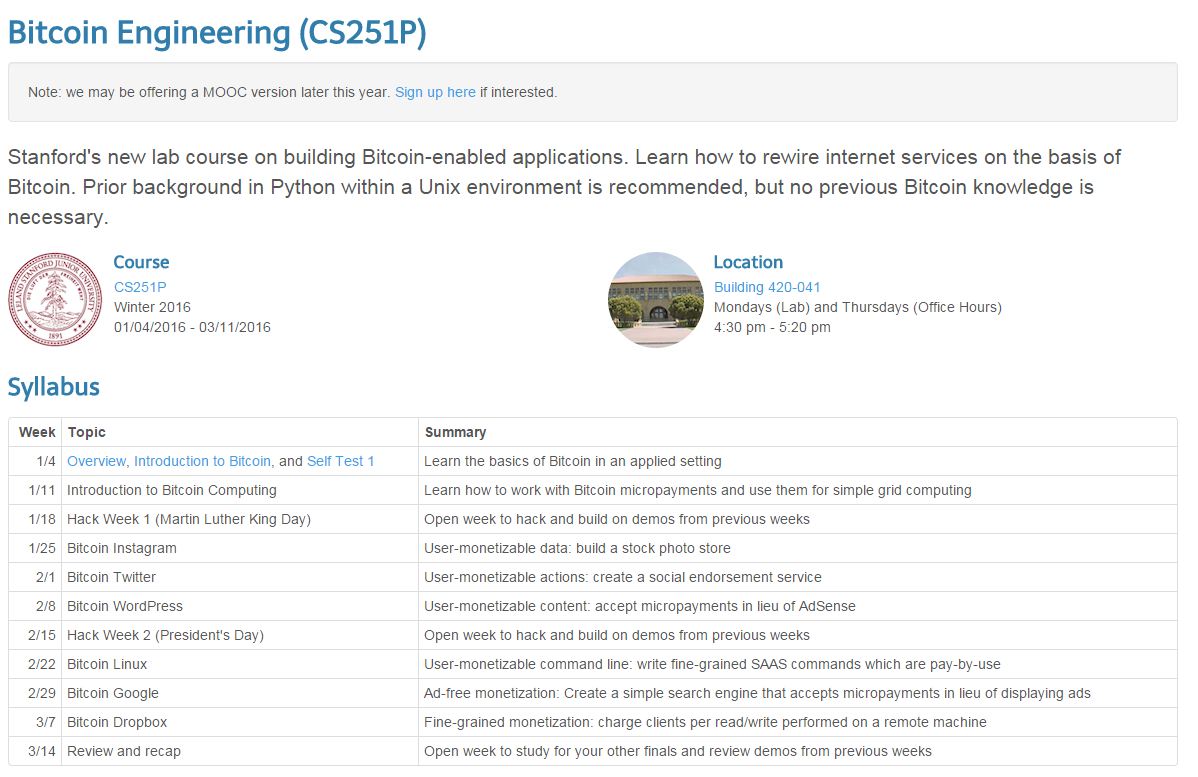Stanford University has started a new lab course on building Bitcoin-enabled applications “Bitcoin Engineering” on 04 January, which is scheduled to run till March 11.
The course aims to explain how to “rewire” internet services on the basis of Bitcoin. Stanford says that for those interested in the course, prior background in Python within a Unix environment is recommended, however, no previous Bitcoin knowledge is necessary.
“Familiarity with basic programming at the level of Stanford's CS106B is required, particularly in Python. Some exposure to HTML, CSS, and Javascript will also be helpful. Students who have previously taken the Autumn 2015 versions of CS251 and CS251P will have more context, but this course is primarily new material”, the website explains.
Instructors include Balaji S. Srinivasan, the co-founder and CEO of 21, along with Dan Boneh, a Professor of Computer Science and Electrical Engineering at Stanford University and the second Andreessen Horowitz Professor-in-Residence.
“The class gives you a sense of what Bitcoin can do. It's not Bitcoin as a financial instrument, not about buy low/sell high. It's about Bitcoin as a protocol”, Bitcoin Magazine quoted Balaji Srinivasan.
In addition to covering the basics of Bitcoin and Bitcoin-enabled computing, the course will also include developing Bitcoin-powered versions of several popular Internet services, previewing a future where services are paid for not by ads or monthly fees but by per-use micropayments – Bitcoin Instagram to focus on developing an app that allows setting a price on Instagram photos and building a machine-payable stock photo search engine; Bitcoin Twitter that deals in building an app that allows to accept micropayments for making retweets; Bitcoin Linux; Bitcoin Google and several other such topics.
“You, as an individual or as part of a small group, will have a week to get the stub code running, add your own improvements, and test it with your peers in an online marketplace”, the website adds.
Bitcoin Engineering Course At Stanford University Begins

Screenshot of Bitcoin Engineering Course page offered by Stanford University. EconoTimes/Stanford University
Friday, January 8, 2016 6:18 AM UTC
Editor's Picks
- Market Data
Most Popular



 FxWirePro- Major Crypto levels and bias summary
FxWirePro- Major Crypto levels and bias summary  FxWirePro- Major Crypto levels and bias summary
FxWirePro- Major Crypto levels and bias summary 

























